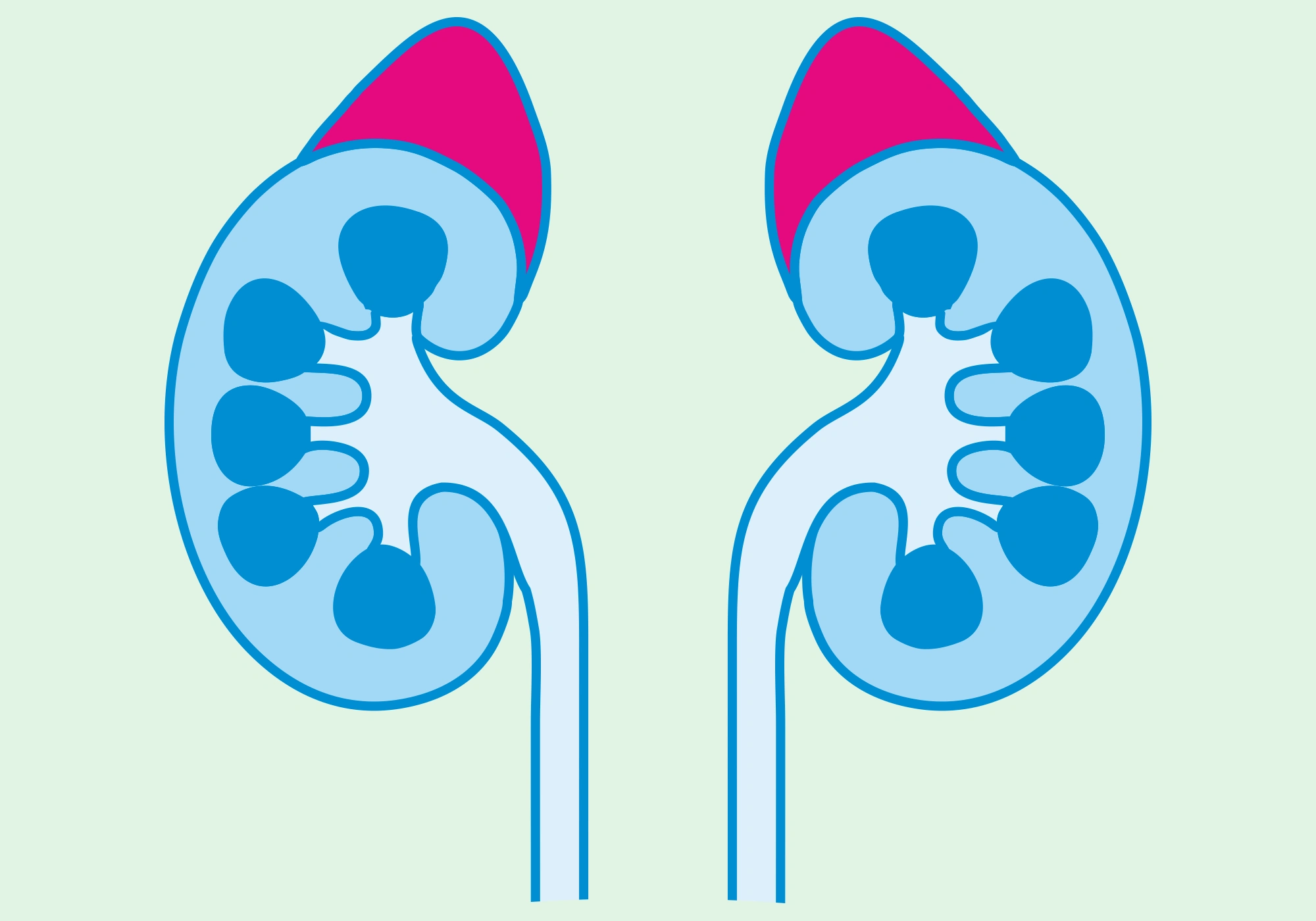To provide services at the highest level, we use cookies. Using the website requires you to choose settings related to their storage on your device. If you want to know what each type of cookie is used for, click the Details button below.
Aldosterone – meaning, action, deficiency, excess 4 maja 2021 |

Aldosterone is one of the key steroid hormones, playing a very important role in regulating the water-electrolyte balance of the body. Its production takes place mainly in the adrenal cortex, which is part of the adrenal system. The action of aldosterone focuses on maintaining the appropriate levels of sodium and potassium in the body, which directly affects the regulation of blood pressure, thus influencing hypotension or hypertension.
The process of aldosterone synthesis is initiated by angiotensin II, a peptide that is part of the renin-angiotensin-aldosterone system (RAAS), which activates the production of aldosterone in response to lowering blood pressure or a decrease in sodium concentration in its plasma. Aldosterone acts on the epithelial cells of the renal tubules, increasing the reabsorption of sodium and water, which leads to an increase in the volume of circulating fluid and an increase in blood pressure. At the same time, aldosterone promotes the excretion of potassium, which is significant in maintaining the body's electrolyte balance.
As a general rule, aldosterone deficiency can lead to problems with the hormonal and electrolyte system of the body in some people. The most commonly noted causes of aldosterone deficiency are:
A persistent aldosterone deficiency in the body sometimes results in very serious health consequences. The most commonly noted effects of aldosterone deficiency are:
Excess aldosterone, also known as hyperaldosteronism, can lead to serious health complications related to the hormonal system and blood pressure in some people. The most commonly noted causes of excess aldosterone include:
Maintaining a high level of aldosterone in the body is also not advisable and can lead to the following health effects:
The health and rehabilitation psychologist working with us, Mateusz Nesterok, M.Sc., also emphasizes that aldosterone has a significant impact on the electrolyte balance and blood pressure. An improper level of aldosterone can contribute to blood pressure disorders, leading to hyperaldosteronism or hypotension, depending on whether there is an excess or deficiency of the hormone. Both excess and deficiency of aldosterone can affect the health status of the heart, including the risk of developing cardiovascular diseases and the overall water-electrolyte state of the body, which can have far-reaching consequences for health and well-being.
As scientific research results show, an appropriate level of aldosterone is key to maintaining cardiovascular health, including preventing disorders such as hypertension or heart failure. Regulation of blood pressure and electrolyte balance, especially sodium and potassium, is essential for optimal functioning of the cardiovascular system.
Maintaining an optimal level of aldosterone in the blood is possible thanks to a healthy lifestyle, including a balanced diet rich in potassium and low in salt. This is also contributed to by engaging in regular physical activity, which has other benefits related to maintaining cardiovascular system health for many years.
ONSEN® offers the Osaka Air mattress, which is the most functional mattress available on the market. Its jobs to be done is responding to user needs, as well as properly solving problems they have. As a result, it has become a cult product that meets all 10 basic mattress functionalities and enables a comfortable and healthy sleep. Moreover, like all ONSEN® products, the mattress is also subject to a 15-year warranty, as well as a program allowing for their return within 100 days, which minimizes the purchase risk to zero.
We also encourage you to explore other articles on the best sleep and health blog, as well as the Encyclopedia of Healthy Sleep prepared by the ONSEN® team of specialists. For those who care about spine health, we recommend a set of spine exercises prepared by our physiotherapist.
Aldosterone is a steroid hormone produced by the adrenal cortex. It is primarily responsible for regulating the body's water-electrolyte balance, which includes maintaining the proper concentration of sodium and potassium in the blood and regulating its blood pressure. Aldosterone acts by increasing the reabsorption of sodium and water and the excretion of potassium through the kidneys.
Aldosterone deficiency can lead to many health problems, including hypotension and hyperkalemia, which affect heart function. Moreover, a low level of aldosterone causes hyponatremia, meaning an increased amount of sodium in the blood. Individuals with aldosterone deficiency often feel weak, tired, and have a tendency to dehydrate.
Excess aldosterone, known as hyperaldosteronism, can result in hypertension and hypokalemia. This leads to muscle weakness and heart arrhythmias, as well as an increased risk of heart and vascular diseases. It can also cause edema due to the accumulation of excessive amounts of fluid in the body.
Aldosterone secretion can be increased by reducing sodium intake in the diet, which effectively stimulates the body to produce more aldosterone to retain it. It's also beneficial to increase physical activity or go to the sauna to lose sodium through sweating, which also boosts aldosterone production.
Reducing aldosterone secretion can be achieved by increasing sodium intake in the diet and using aldosterone receptor-blocking medications, such as spironolactone. It's also important to treat the underlying conditions that lead to increased aldosterone secretion, such as primary hyperaldosteronism (Conn's syndrome).